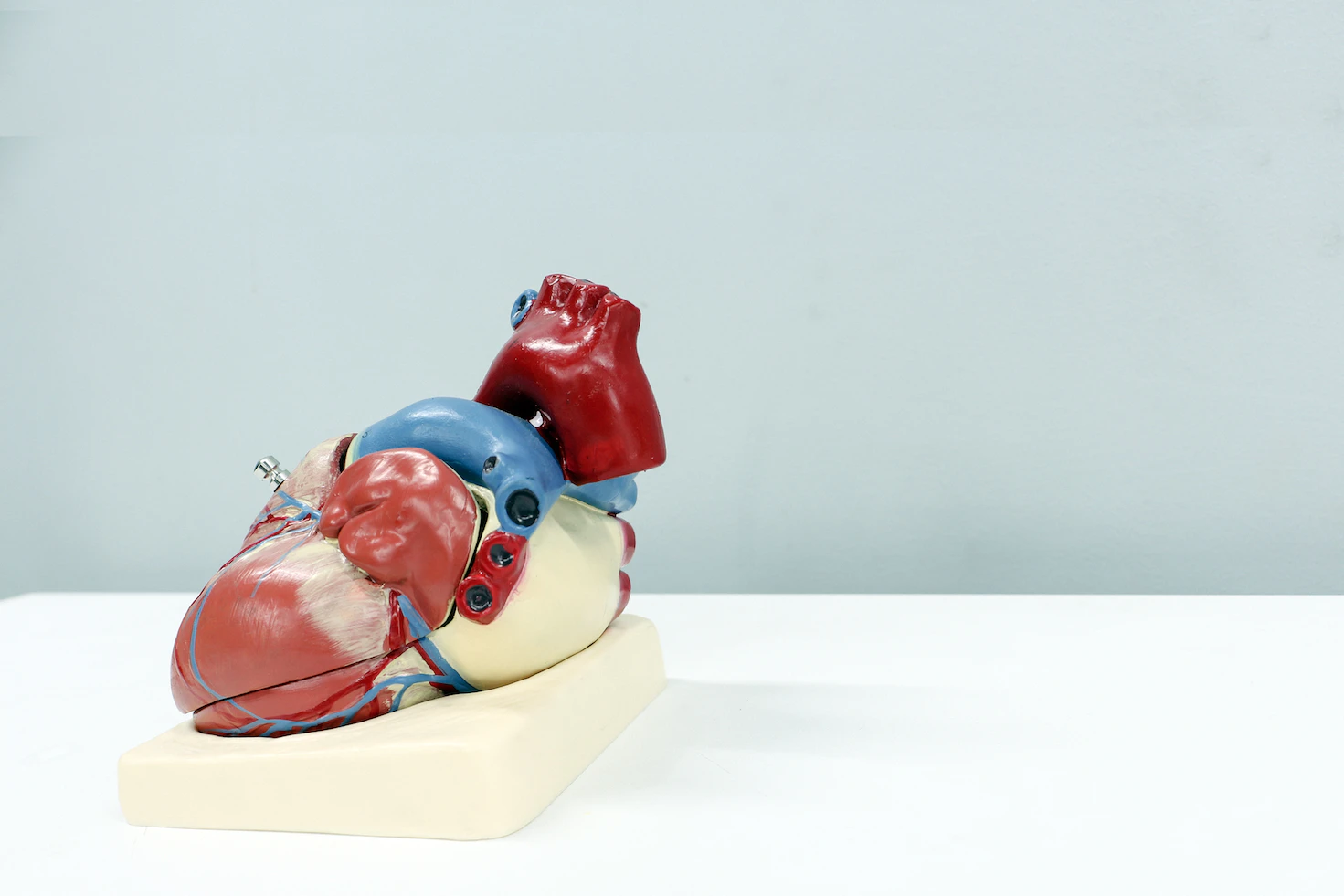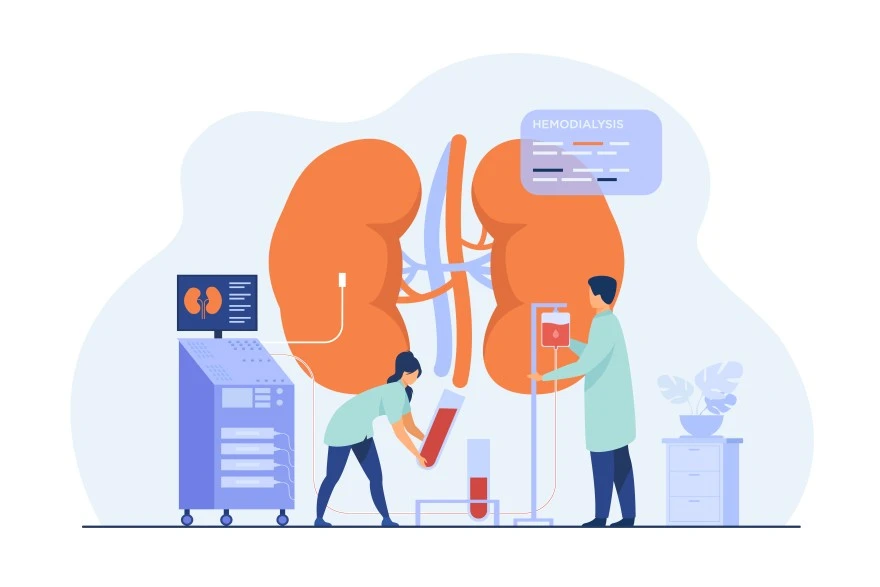Preventive Healthcare
Blood Circulation in the Heart: Process and Steps

Table of Contents
Introduction
The human heart is a remarkable organ that works tirelessly to ensure blood circulation throughout our body to supply vital oxygen, nutrients and essential substances to every cell. Blood circulation is an intricate process in the heart that is fundamental to our overall health and well-being.
It consists of a series of processes starting from the oxygen-poor blood entering the heart and the heart finally pumping out oxygenated blood to the body's tissues. This continuous blood flow in the body is also called breaths of life.
In this write-up, we will explore how the heart's circulating system sustains life by delivering oxygen-rich blood to the brain and extremities while removing oxygen-poor blood and waste products.
The overview of blood circulation in the heart
Blood circulation is the foundation of our cardiovascular system, responsible for transporting blood to every body part. The heart, blood vessels and valves work together to ensure continuous blood flow throughout the body. The blood circulation process in the heart mainly involves taking in deoxygenated blood and pumping back oxygenated blood.
Deoxygenated blood enters the heart through the superior vena cava, flows to the right atrium, then to the right ventricle and is sent to the lungs for oxygenation. Oxygenated blood returns to the heart, enters the left atrium, then the ventricle and is distributed to arteries, capillaries and organs. Efficient blood circulation in the heart is important for maintaining overall health. It nourishes the brain and body, supports daily activities and filters out toxic wastes.
The step-by-step process of blood circulation in the heart
- Atrium and ventricle contractions
Normal blood circulation in the heart begins with the contraction of the atria and the ventricles. The atria contract simultaneously, pushing blood into the ventricles. Subsequently, the ventricles contract, pumping the blood out of the heart.
- Valves regulating smooth blood flow
Various valves within the heart act as guards for regulating blood flow. Mitral, aortic, tricuspid and pulmonary valves will open and close at precise moments to ensure the movement of blood flow in the right direction by preventing backflow.
- Pulmonary circulation
In pulmonary circulation, the right ventricle transfers deoxygenated blood to the lungs through the pulmonary artery. Within the lungs, oxygen is absorbed and carbon dioxide is released, transforming the blood into an oxygen-rich state. The oxygen-rich blood then moves to the heart along the pulmonary veins, entering the atrium and ventricle on the left.
- Systemic circulation
Systemic circulation distributes oxygenated blood through the body. The left ventricle transfers oxygen-rich blood into the aorta, which branches to arteries, delivering oxygen and nutrients to tissues. Oxygen and nutrients are dropped off in capillaries while carbon dioxide and waste products are picked up. And finally, the deoxygenated blood returns to the heart through the right atrium and the right ventricle through veins.
- The return journey
After the oxygen and nutrients are delivered to the tissues, the blood becomes deoxygenated and filled with waste products. Veins collect this deoxygenated blood and carry it back to the heart, starting a new cycle. This return journey sets the stage for the heart to receive deoxygenated blood, preparing it for oxygenation and subsequent circulation.
- The role of arteries, veins and capillaries
Arteries, veins and capillaries work together to navigate the pathways for blood circulation. Arteries carry oxygenated blood from the heart and veins move deoxygenated blood back to the heart. Capillaries are the smallest blood vessels connecting arteries and veins, facilitating the exchange of substances between the blood and tissues.
Importance of efficient blood circulation in the heart
- Oxygen supply to the body's organs and tissues
Efficient blood circulation ensures that oxygen is adequately transported to all organs and tissues, supporting their optimal function. This oxygenation is vital for cellular processes and for preventing organ dysfunction.
- Nutrient delivery
Blood circulation in the heart is important in delivering nutrients such as glucose, amino acids, vitamins and minerals, to cells. These nutrients provide energy for cellular activities, growth, repair and overall health.
- Removal of waste products
Efficient blood circulation is essential for the removal of waste products, including carbon dioxide and metabolic byproducts, from cells. Proper waste disposal will prevent the accumulation of harmful substances by maintaining organ and tissue health.
- Regulation of body temperature
Blood circulation helps regulate the body temperature. Blood vessels near the skin's surface can dilate or constrict to release or conserve heat, aiding in maintaining the body's internal temperature within a narrow range.
- Immune response and healing
The blood circulatory system in the heart transports immune cells and antibodies throughout the body, enabling them to quickly reach infected or injured areas. This circulation supports immune responses, fights off infections and promotes tissue repair.
- Overall health and well being
Healthy blood circulation in the heart supports better functioning of all body organs, promoting overall health and well-being. It reduces the risk of cardiovascular diseases and enhances vitality and cognitive abilities.
Book Blood Test at Home
Conclusion
Efficient blood circulation in the heart is important for maintaining overall health and well-being. It will ensure the proper delivery of oxygen and nutrients and the removal of wastes, supporting organ functions and immunity.
Maintain a nutritious diet to promote your heart health and efficient blood circulation.
Regular physical activity improves blood flow, strengthens the heart and maintains a healthy weight. Make sure to monitor blood circulation in the heart through checkups if necessary to detect potential issues.
Metropolis Healthcare offers accurate diagnosis and efficient lab tests for analysing blood circulation related to heart health. Metropolis ensures accuracy in blood testing with qualified and highly experienced professionals. Trust Metropolis Healthcare for reliable blood circulation analysis, at-home visits for blood sample collection and advanced diagnostic lab processes and reports.


























